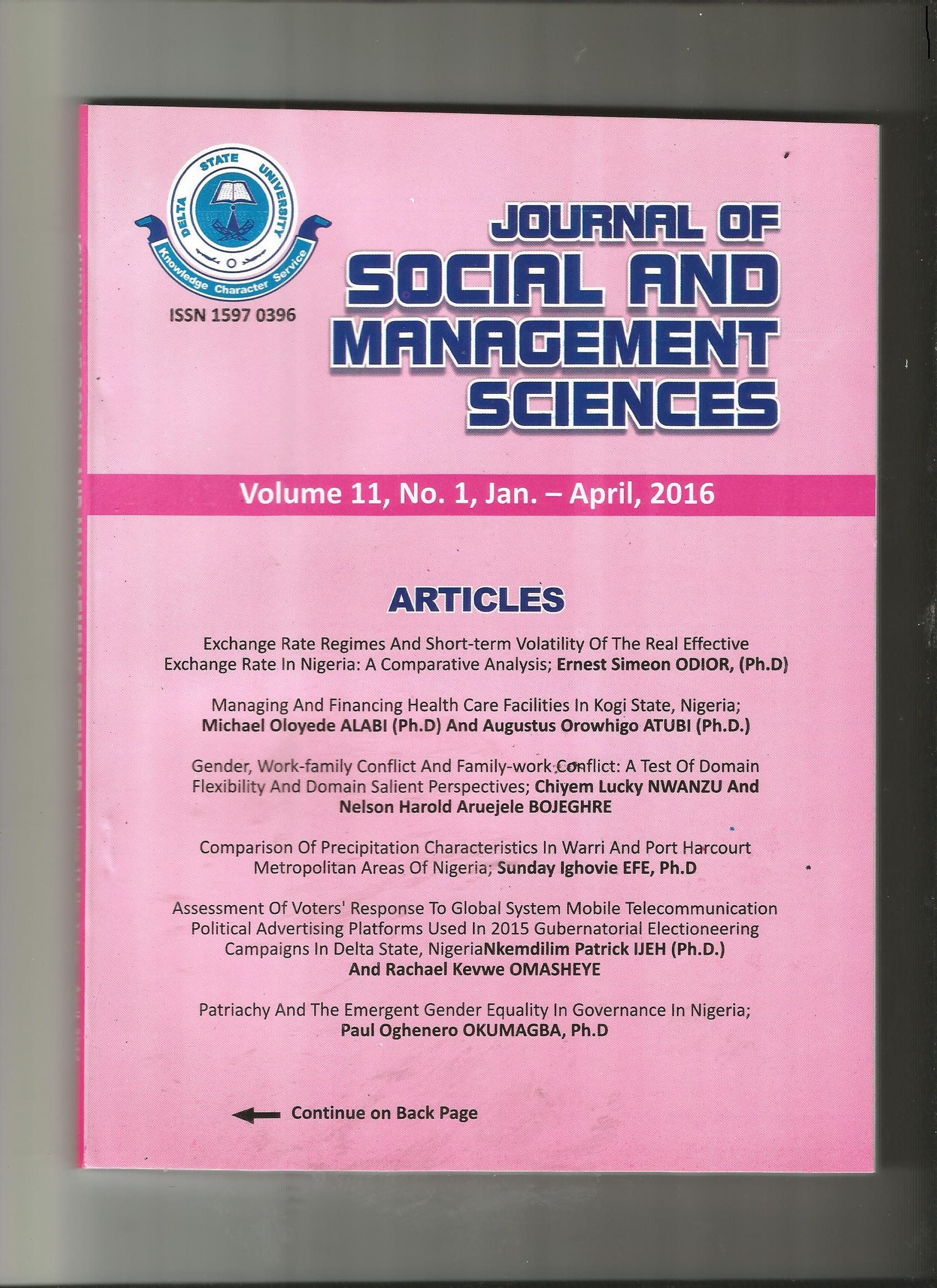
JOURNAL OF SOCIAL AND MANAGEMENT SCIENCES
Journal of the Faculty of Social Sciences, Delta State University, Abraka, Nigeria
ISSN: 1597-0396
DOI: 10.5987/UJ-JSMS
Email: jsms@universityjournals.org
CONTRIBUTION OF THE MASS MEDIA TO THE PROMOTION AND ACCEPTANCE OF THE ROLLBACK MALARIA PROGRAMME IN THE DELTA CENTRAL SENATORIAL DISTRICTS OF DELTA STATE
DOI: 10.5897/UJ-JSMS.16.004.1 | Article Number: F6982D4 | Vol.10 (3) - September 2015
Author: OJOBOH Ogheneruemu Lucky
The Roll Back Malaria Programme of the World Health Organization (WHO) was conceived to reduce the death-toll from malaria infection by half by the year 2010 through improved access to quality assured artemisim – based combination theory. Till date, plasmodium falciparum still kills one million people each year; including 300,000 Nigerians. Studies have been conducted to ascertain the role of the mass media in the promotion and acceptance of the Roll Back Malaria programme in the country. However, not much work has been carried out to find out the perception of the implementers of the programme with respect to the role of the mass media in this life-saving programme. How have the mass media impacted on the implementers of the programme? The essence of this study was to determine whether the implementers-medical doctors, pharmacists and nurses- believe the mass media contributed significantly to the promotion and acceptance of the effective benefits of the Roll Back Programme. Two hundred doctors, pharmacists, and nurses in government hospitals in the reduction of death from malaria infection and in proffering solutions on how to enhance the performance of the mass media did not make a significant impact on thee implementers of the programme; television was the medium that contributed mostly to the creation of awareness of the RBM programme in Delta Central senatorial district. Television was also the preferred medium of choice for a more extensive and intensive reach for the dissemination of the RBM Programme. Respondents suggested that message designed for the programmes should be conceptualized, produced and presented in the local dialects/languages of the district, and most importantly, these messages should be embedded in story outlines for radio and television dramas.
